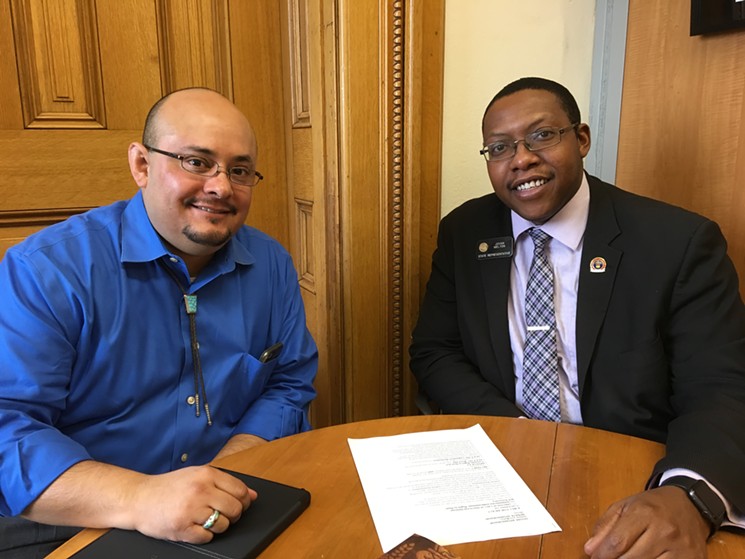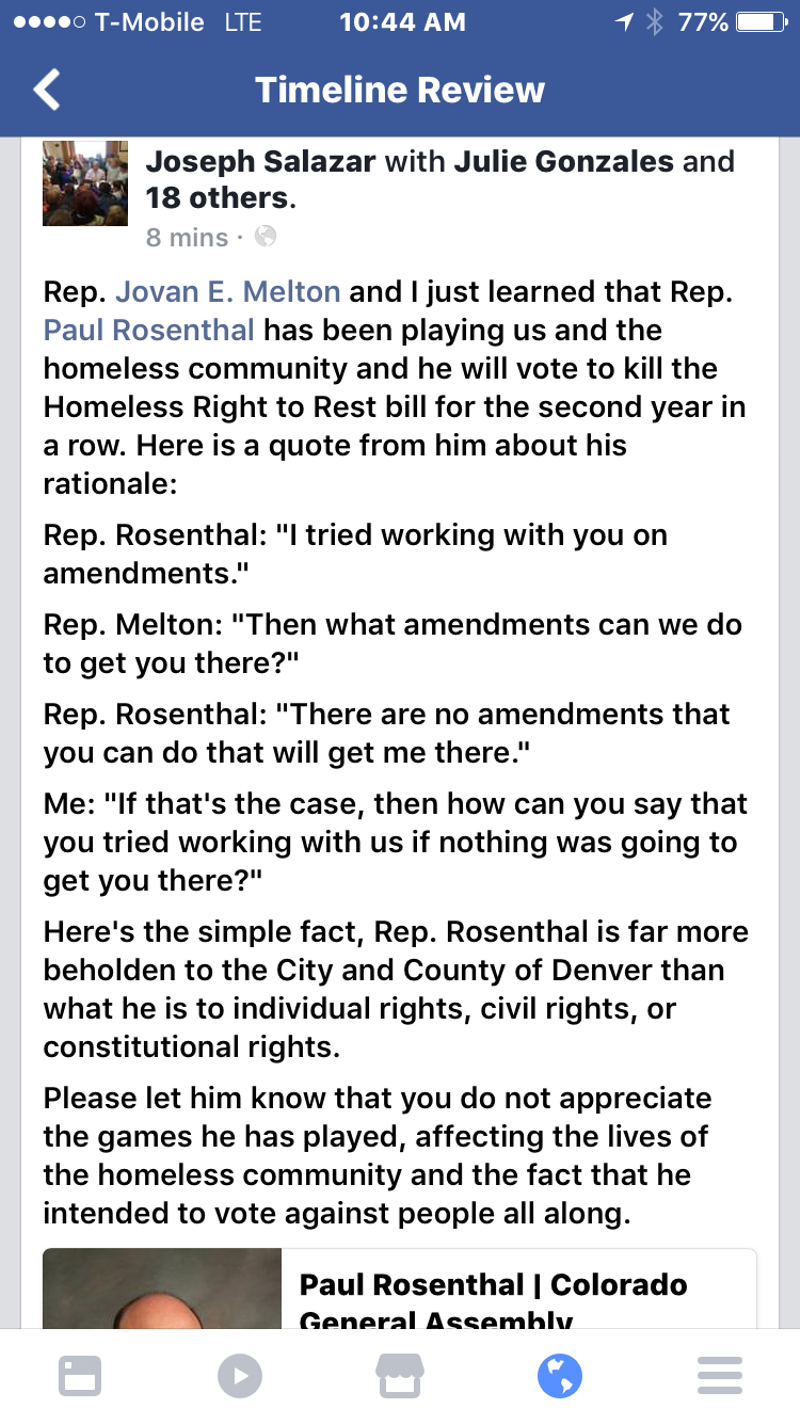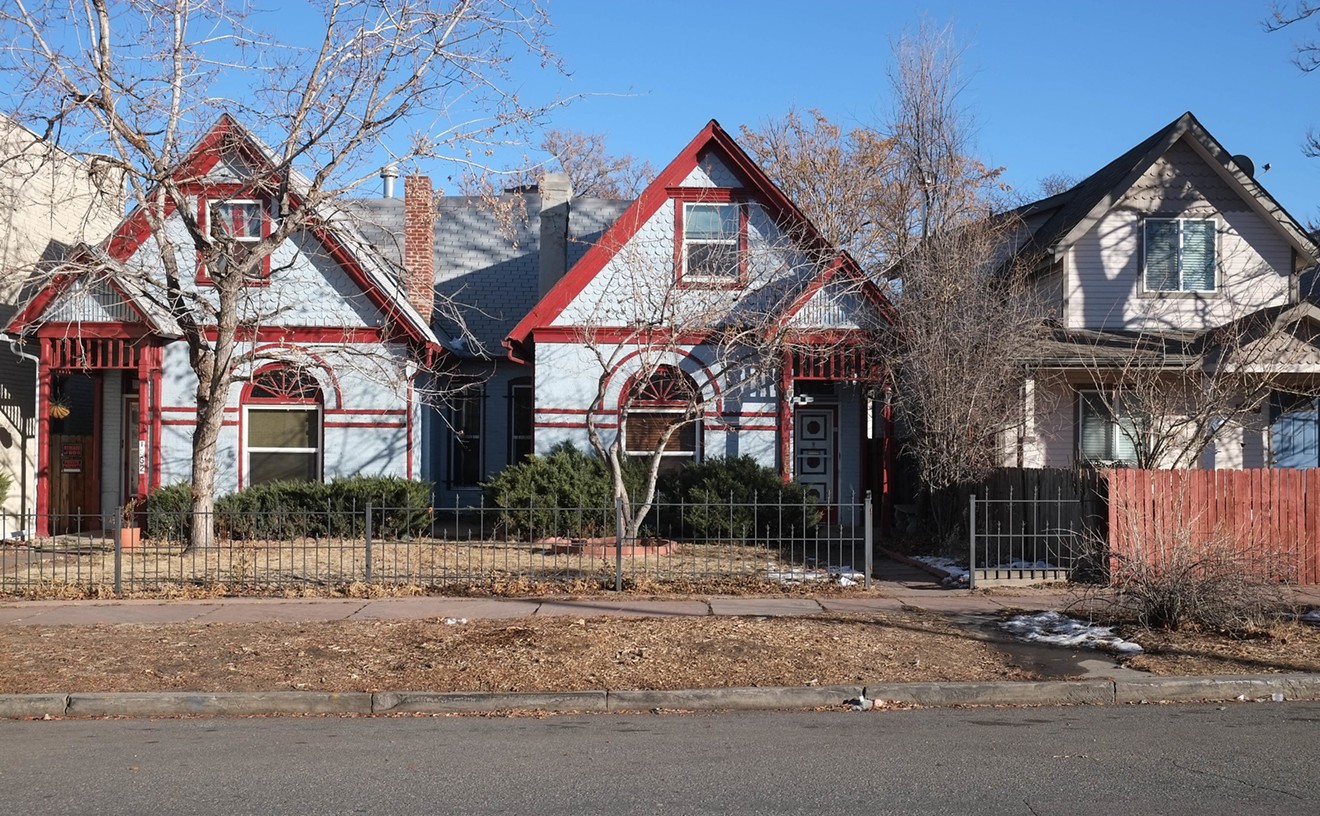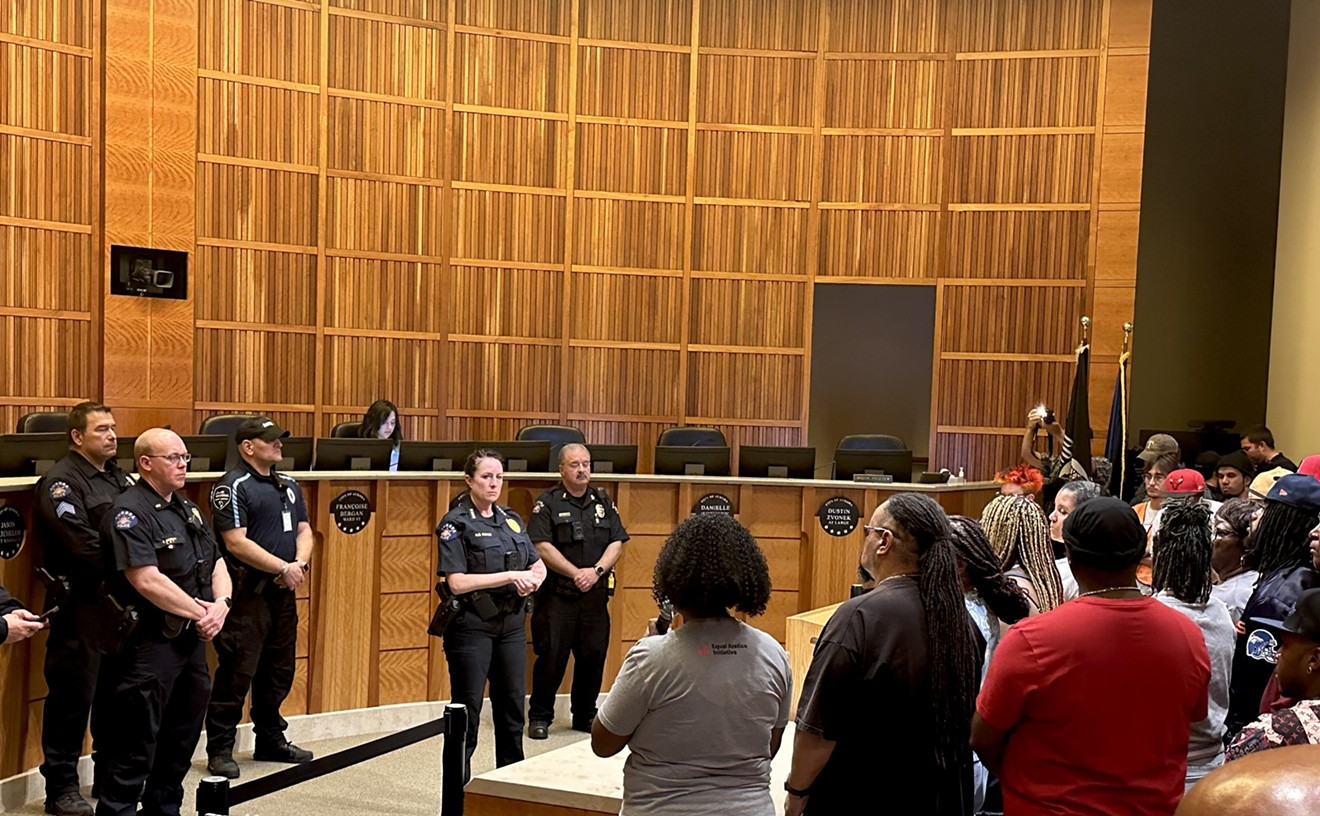Bill sponsors Joseph Salazar and Jovan Melton were attempting to get the bill out of committee for the fourth year in a row. Well aware of the bill’s fate last year in the same committee (struck down 8-5), the representatives had delayed this year’s hearing to petition for the bill to be heard by the Judiciary Committee, where they felt it had a greater chance of passing. But the bill ultimately stayed with the Local Government Committee, and its prospects of passing were again slim.
Advocates of the bill who testified yesterday included people experiencing homelessness and representatives of such heavy-hitting organizations as the ACLU of Colorado, the Colorado Coalition for the Homeless and the National Law Center on Homelessness and Poverty.
Most of the hundreds of people packing the room at the Capitol supported the bill. An overflow room opened nearby and streamed audio of the hearing. But compared with last year's proceedings, there were more testimonials in opposition from city officials and law enforcement personnel from Greeley, Fort Collins, Denver and Colorado Springs.

State representatives Joseph Salazar and Jovan Melton sponsored the Right to Rest bill.
Chris Walker
“I’ve heard that law enforcement doesn’t want this to pass because it’s an eyesore,” the officer said. “But it’s not about that; it’s about public safety. “
She argued that public parks would be taken over by homeless people, who would defecate and leave behind dirty needles, putting visitors at risk. The officer added that more and more women would also be “prostituted out” through the homeless community. Audience members hissed at her claims.
Others testifying against the bill, including Don Mares, executive director of Denver Human Services who was there representing the city's interests, rolled out an argument familiar to those who have followed the bill over the past four years: that it won’t solve homelessness, because the bill itself doesn’t provide housing or additional services. Mares added that it was Denver’s position that allowing people to “sleep on the cold concrete” is "not a way to live" and is “inhumane.”
In response, Melton and Salazar explained that nothing in their bill prevented cities from providing services to homeless populations and that the intent of the Right to Rest bill was to stop cities from criminalizing people trying to survive in public spaces. The representatives and other supporters made reference to a study by the University of Denver that found that cities in Colorado have spent millions enforcing anti-homeless ordinances. Others who testified said ordinances like the camping ban made it impossible for them to live stable lives because they couldn’t get adequate sleep and risked being cited, potentially adding to a criminal record and making employment even more unlikely.
One of the Democrats on the committee, Paul Rosenthal, declared that he had done more than any other committee member to reach out to homeless communities. But he also had the most frequent and critical questions about the bill — possibly stemming in part from a social-media spat that Rosenthal and Salazar got into last year after the failure of the 2017 version of the Right to Rest bill. Salazar claimed that Rosenthal had betrayed a vow he made to work on amendments that would have made the bill more attractive for him.
Rosenthal grilled the bill sponsors yesterday on whether cities could still displace people when they encumbered a public right-of-way (“Yes,” Melton and Salazar replied) and why a home-rule city like Denver couldn’t enact something like Right to Rest on its own.
“We haven’t seen much appetite [in Denver],” Melton responded.
But advocates of the bill argued that the mood in Denver is quite the opposite.
Last year, Erik Soliván, then head of a new city housing department, presented the city's testimony against the bill. This year, Soliván, who has since resigned from the Office of HOPE and who attended the hearing in a personal capacity, pulled a 180 and argued that homelessness is a regional issue that should be addressed by the state. “The Right to Rest bill is not perfect, but it is certainly worthy of debate on the House floor,” Soliván said at the hearing.
Also breaking with Denver was City Councilman Paul López. He threw ice on Rosenthal’s suggestion that “there’s maybe one councilmember in Denver that opposes the camping ban” by claiming that there were, in fact, five councilmembers who are against the ordinance (which a Westword investigation unveiled has been used nearly 10,000 times since 2012 to “move along” homeless campers).
“It's not often as a councilman that I come to you and talk about forsaking our home rule; however, when it comes to human and civil rights, we ask you to step in,” López told the committee.
He called Denver’s camping ban, which would be gutted if a state-level Right to Rest bill passed, cruel, and he characterized its roll-out in 2012 as “the city’s most powerful versus the city’s most vulnerable.”
“I know there are five of us that would vote for a repeal today,” López said of his fellow councilmembers. “But you know a veto-proof bill is nine [votes], and we know we only have five, so that’s why we’re coming to you.”
After the decisive 10-3 vote, an exhausted-looking Salazar told the committee that it had been an honor for him to represent the bill. Now that Salazar is running for attorney general, it's unclear whether a Right to Rest bill has a future in the next legislative session.













